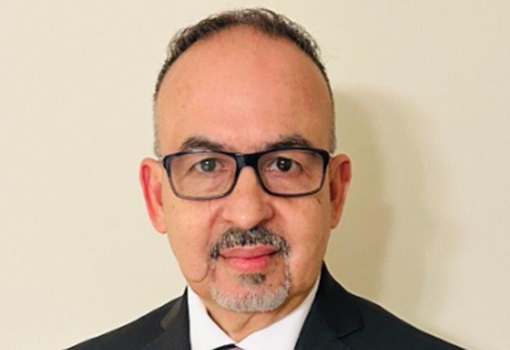latest
Massachusetts Parole Board nominee ready to “tackle racial bias in the criminal justice system”

- Sam Doran
STATE HOUSE, BOSTON, MARCH 27, 2024…..Gov. Maura Healey’s latest Parole Board nominee told the Governor’s Council on Wednesday about experiencing racial bias as a student in Worcester, learning to “view society through a different lens” in his work for the probation service, and his hopes to tackle racial bias in the criminal justice system.
“I look forward to being a small part in Gov. Healey’s administration’s vision to address the glaring racial bias and disparities in the criminal justice system,” Rafael Ortiz told councilors.
The longtime Central Massachusetts probation officer said his passion for the juvenile justice system was sparked during his time as a Department of Youth Services case worker. He moved to Florida, worked there in probation and parole for five years, then moved back during an expansion of the Massachusetts Juvenile Court and took a job as a juvenile probation officer.
“I believe that many of the families of children that I dealt with throughout my career suffered significant mental health issues, substance abuse, trauma, and socio-economic adversities. In my career, I have learned how to view society through a different lens. I can relate to their struggles because I have lived it, dealing with family members who had mental health and substance abuse problems,” Ortiz said.
Hailing from a dairy farm in Puerto Rico, Ortiz was 11 years old when his parents decided to move to Massachusetts and settled in Worcester by way of Holyoke.
He recalled the “very different world” they arrived in — from the new language, to the cold, snowy weather.
“It hasn’t been easy for me, especially growing up and struggling in school because of my language barrier,” he told members of the Governor’s Council, which could vote as soon as next week on whether to confirm him to the board.
Ortiz recalled “adversity, racial bias in school and the community, and even in my job.” And the Worcester High School graduate said a guidance counselor advised him to join the military because he “was not cut out for college.”
“Thank God I didn’t listen,” said the 1985 UMass Amherst alumnus, who spent a term in 1987 working as a K-6th grade permanent substitute teacher in the Worcester public schools.
The council in November confirmed another Healey pick to the Parole Board: Edith Alexander, who was also a longtime probation officer.
Councilor Tara Jacobs said the governor’s choice of Ortiz and his probation background felt “duplicative.” The North Adams Democrat invited Ortiz to push back on her assumption during the public hearing.
“Working with adults and working with juveniles is totally different. I mean, we get to see where they grow up, where they go to school, the parents, the trauma that they go through and how they end up in the system in prison,” said Ortiz. “I enjoy working with these families. Sometimes it’s very difficult for them to navigate through the system.”
He added that he would “bring a different perspective to the board, especially now with the [Commonwealth vs.] Mattis decision, where I believe that there’s going to be so many people that are eligible for parole in the next few years.” The Supreme Judicial Court’s January ruling found that life-without-parole sentences are unconstitutional for 18-, 19-, and 20-year-olds.
“I can remember having some kids on probation that qualified for that, actually, that I know and I remember. There was this 9-year-old that I met, he ran away and Worcester police picked him up. And he was so small, and we got to know him. And throughout the years, unfortunately he became more involved in the system. … But one thing I remember is that no matter when I ran into him, before he was sentenced to life in prison, we always had a connection. He always had respect for me,” Ortiz said.
At Jacobs’ prompting, Ortiz also reacted to WBUR’s reporting this month on how a majority of arrests by parole officers involved people other than parolees: “I think unless you’re certified, unless you’re a police officer, you shouldn’t be arresting anybody that’s not on parole,” he said.
Juvenile Court Judge Anthony Marotta recalled meeting Ortiz in the 1990s and how he was “pleasantly surprised to meet a probation officer who was more interested in helping kids stay out of court, rather than punishing them for their mistakes.”
“I know that’s a well-settled principle in Juvenile Court today, but it really was a rare quality among probation officers years ago,” said Marotta, a 2011 appointee of Gov. Deval Patrick who previously worked as a prosecutor and defense attorney.
Retired Worcester Juvenile Court Judge Luis Perez, a 1987 appointee of Gov. Michael Dukakis, lauded Ortiz’ “vast knowledge of our complex criminal justice system.”
And Jeffrey Lassey, who was incarcerated from age 17 to 26 and now speaks about his life to schoolkids, told Governor’s Council members that he was “ecstatic” when Ortiz, who worked with him on the presentations, applied to join the Parole Board.
“He never cut me a break. … He would pull the hardest things for me to talk about out of me, because he knew that’s what those kids needed to hear,” Lassey said. He added, “He’s not impressed by your title, he’s not impressed by your financial situation, or your clothes. He’s impressed by your character and what you stand behind.”
Multiple councilors said they were moved by Lassey’s testimony. Councilor Terrence Kennedy called him the “perfect character witness,” and Councilor Marilyn Petitto Devaney said he was “gonna make me cry.”
A majority of councilors indicated they favored Ortiz’ nomination. Jacobs said her inbox was “absolutely flooded” with messages from his supporters, Devaney said she appreciated his bilingual ability, and Councilor Joseph Ferreira said some current Parole Board members told him they would be “happy” to have him join them.
Ortiz “could retire soon” based on the current state of his resume, according to Councilor Eileen Duff. The Gloucester Democrat asked him why he wanted to “start another profession” at this point in his career.
“I asked myself that several times, my family asked that,” Ortiz replied. “But like I said, after meeting Councilor DePalo and meeting the board, and going through a few hearings, this is something that I’m passionate about. The fact that I might be able to make just a little difference in something. It’s like starting over, but it’s exciting. I look forward to it, especially with the people on the board now. So yeah, I could go. But I think I still have a lot more left.”
-

 Community6 years ago
Community6 years agoNational Shrine of La Salette Festival of Lights 2017 set to begin
-

 Community6 years ago
Community6 years agoMassachusetts State Police looking for good home for retired dogs
-

 Crime6 years ago
Crime6 years agoFall River ranked most dangerous city in Massachusetts according to report
-

 latest6 years ago
latest6 years agoDurfee student allegedly overdoses on marijuana
-

 Community6 years ago
Community6 years agoVideo of Fall River Police goes viral
-

 Causes6 years ago
Causes6 years agoMissing Fall River woman found deceased
-

 Crime6 years ago
Crime6 years agoFall River Police add names to most wanted list
-

 Causes6 years ago
Causes6 years agoFall River teenager reported missing has been found






Fed Up
March 27, 2024 at 6:46 pm
Get ready for more criminals to be released and to reoffend in the name of ” racial bias in the criminal justice system “
MortisMaximus
March 27, 2024 at 9:21 pm
https://www.infowars.com/posts/state-parole-board-members-step-down-after-freeing-man-who-stabbed-pregnant-woman-killed-11-year-old-within-24-hours-of-being-released/
This will be the result if this asshole is approved to the parole board!
J. Cardoza
March 27, 2024 at 11:25 pm
Bleeding heart touchy feely liberal
No one asked
March 28, 2024 at 8:00 am
I’d rather have a seasoned police officer on the parole board than a parolee.
MortisMaximus
March 28, 2024 at 12:16 pm
You are a Holocaust denier Poor Sucker.
Trump loves the poorly educated suckers.....
March 28, 2024 at 10:57 am
Can you imagine somebody on the board that wants to end racial bias? The Nazis above can’t have that!
dr david
March 28, 2024 at 11:54 am
Well … get ready for some more ‘jail break’ … because this woke fool will unleash Violent Criminal Hell on communities like Fall River ….
early release violent offenders don’t go back to their homes in Duxbury, Portsmouth or Wellesley